WHAO’s REPORT ON CSW63 AT THE UNITED NATIONS
March 25, 2019
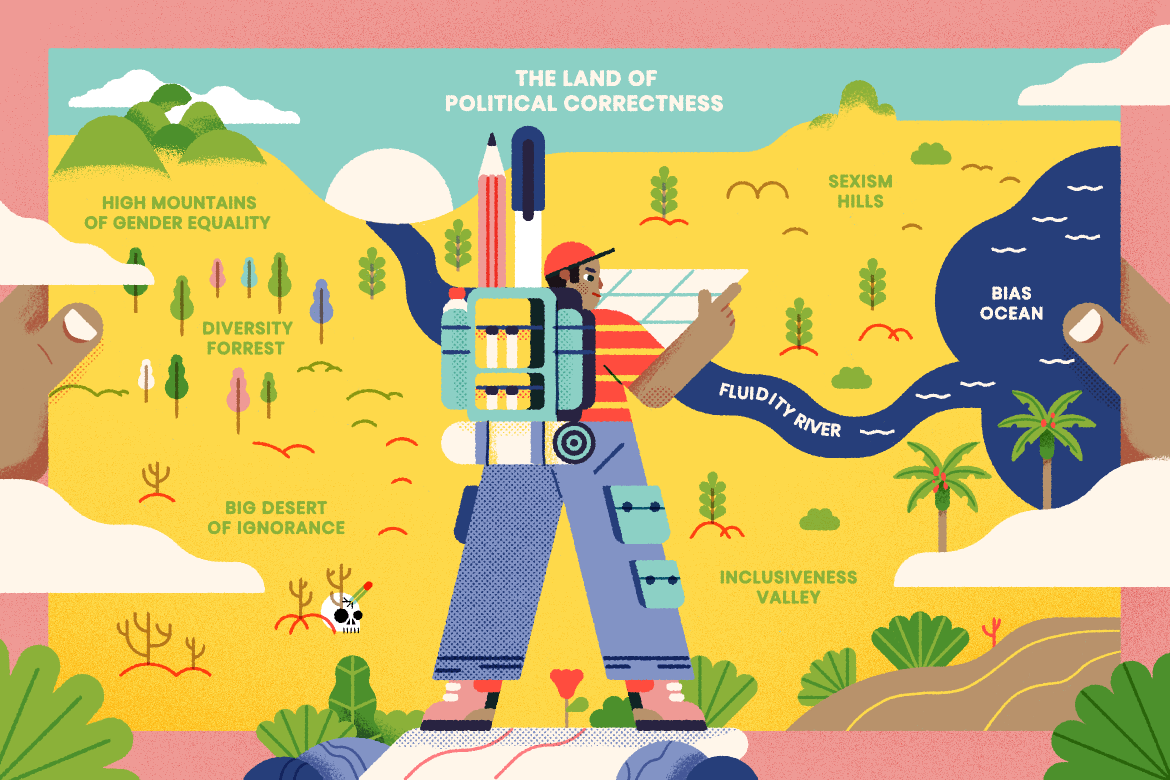
According to the World’s Women 2015 report, 496 million women and girls over the age of 15 are illiterate, that’s nearly two-third of the world’s illiterate population. Gender equality is not only a basic human right but is also instrumental to achieving the full potential of humanity, promote sustainable development and ultimately achieve a peaceful society. Empowering women contributes to greater productivity and economic growth throughout the world. We still have a long way to go to fully achieve gender equality, which would lead to equal opportunities for women.
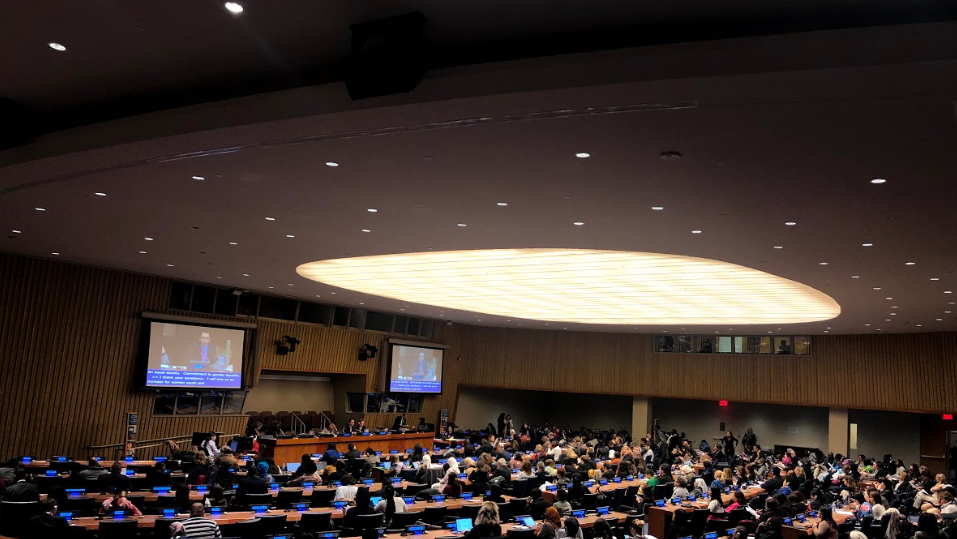
The World Human Accountability Organization (WHAO) is honored to have actively participated in this year's Sixty-third Session of the Commission on the Status of Women (CSW63), which was held at the United Nations Headquarters in New York from March 11 to 22, 2019. This year’s topic of the General Assembly is continuing promoting gender equality and empowering women. WHAO will continue to work on our education and poverty alleviation programs to provide all young people with increased access to education, training and to consistently work towards gender equality goals.
Accelerating implementation of Beijing Declaration
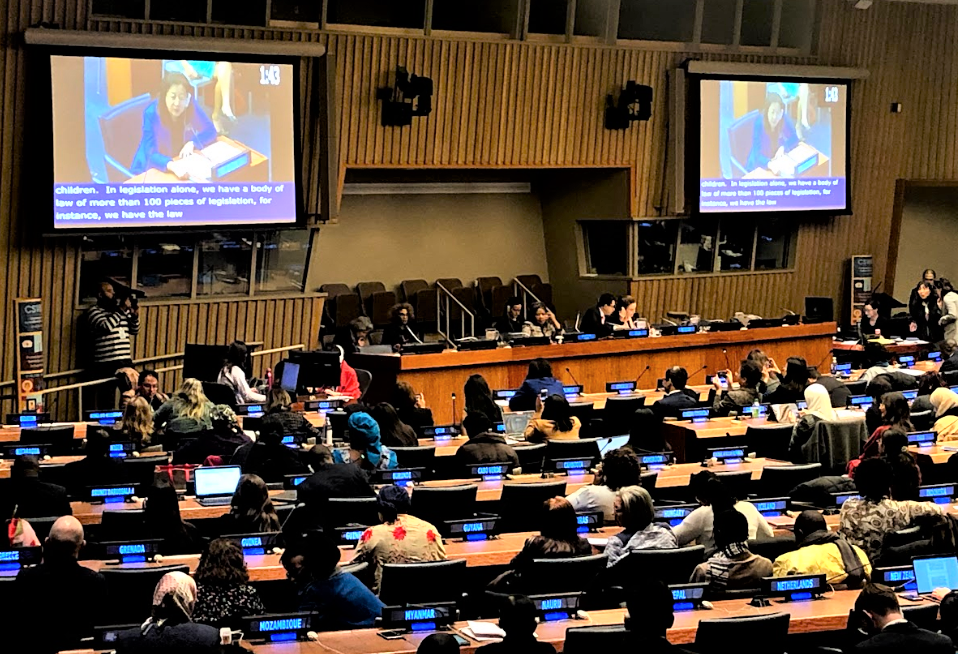
On Wednesday, March 13, 2019, The World Human Accountability Organization (WHAO) joined a high-level interactive dialogue at the United Nations Headquarters in New York on the Beijing Declaration. The dialogue was entitled: “Accelerating implementation of Beijing Declaration and Platform for Action: Exchange of best practices in preparation for the Beijing +25 review and appraisal.”
Government representatives, civil society, including women’s organizations, representatives of UN Women, the private sector and members of the media discussed steps to achieve gender equality and empower all women and girls.

In September 1995, thousands of activists gathered in Beijing to open the Fourth World Conference on Women. At the conference, they agreed to focus on gender equality and women’s empowerment globally. This led to the Beijing Declaration and Platform for Action, a progressive platform for women’s rights.
This high-level dialogue was interactive and focused on accelerating the advancement of women’s rights, as stipulated in the Beijing Declaration and Platform for Action. Some questions that arose at the conference were: how are different stakeholders contributing to the Beijing +25 process and what steps they are taking? How will implementation gaps be addressed?

Ms. Phumzile Mlambo-Ngcuka, the UN Under-Secretary-General and the Executive Director of UN Women, explained that governments, private organizations, the media and other entities need be involved in the process. She also mentioned there will be a review of the Beijing Declaration and they will introduce the results of the 2020 conference. In her opening remark Ms. Mlambo-Ngcuka said: “We want millions and millions of women, especially young women to participate in this review using all means that are possible, all platforms that are possible for us to have an inclusive dialogue. We will use every technology that is available to facilitate this dialogue.”
Ms. Mereseini Vuniwaqa, FiJi Minister for Women, Children and Poverty Alleviation communicated the advances made in her country especially considering the creation the Fiji Women’s Forum in March 2018. She emphasized that an integrated and balanced approach supported by institutional arrangements, adequate data, measurable goals and accountability will help achieve gender equality.
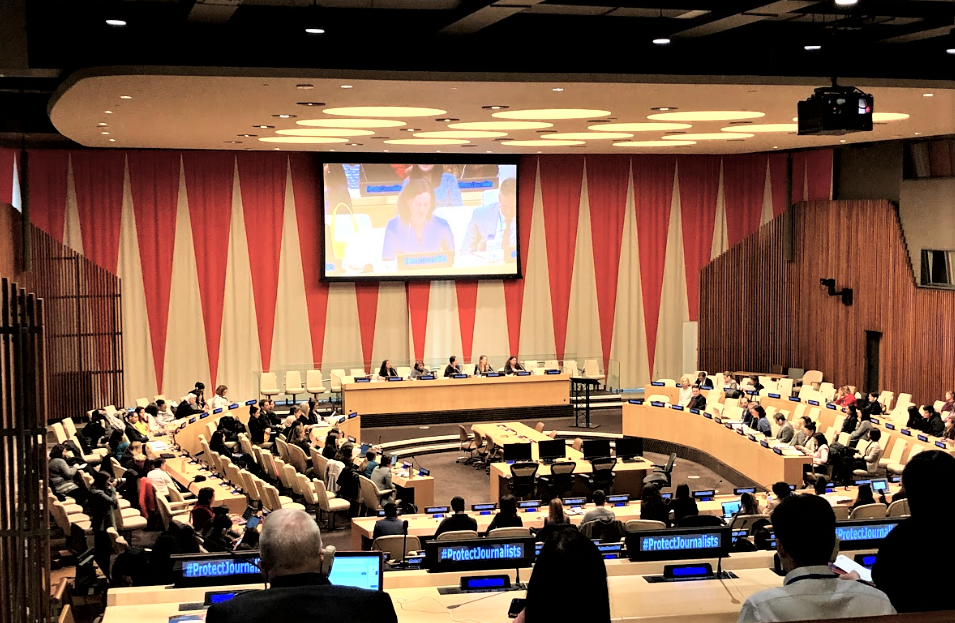
For her part, Ms. Kelly O'Dwyer Minister for Women, Australia said they are proud of what they have achieved in specifically two areas: first, leadership and participation in public life. She explained that 60.7% of women are currently participating in the paid workforce compared to 70.9% of men. The second area is women’s economic security, which according to her is at the highest level in Australia. They are working to ensure that all women in Australia can fulfill their potential.
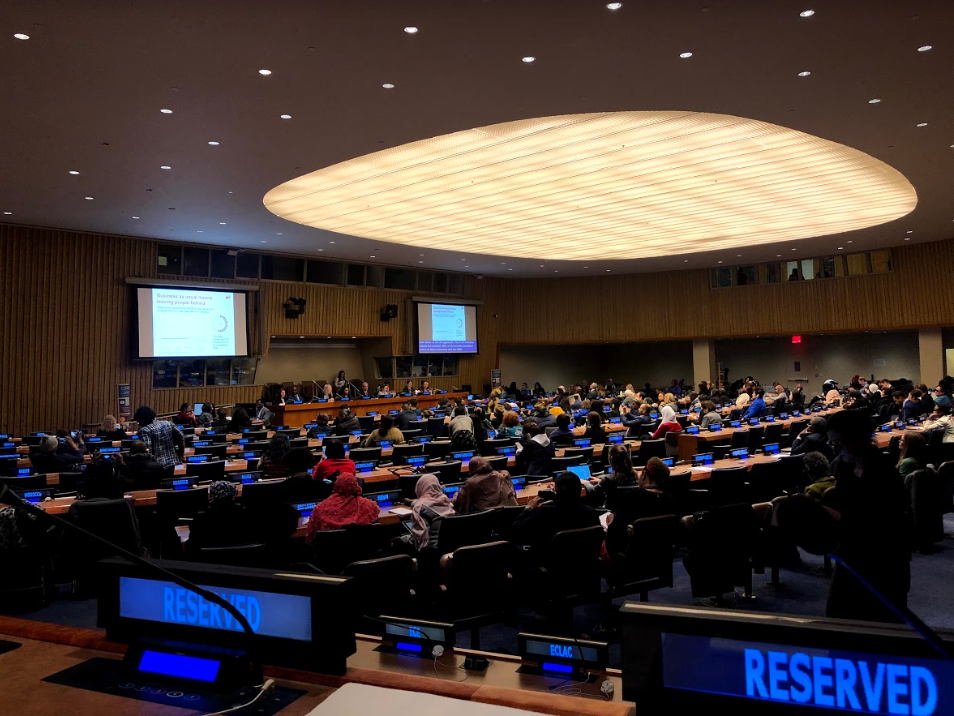
WHAO on Monday, March 18th, 2019 joined the conference entitled: "Interactive Expert Panel 'The Data Challenge—and Opportunity: Good Practices'”. This conference addressed the important facts that data, which has often been neglected by people, and as such, more awareness needs to be raised. The use of data can lead to a more gender inclusive and more equitable society.
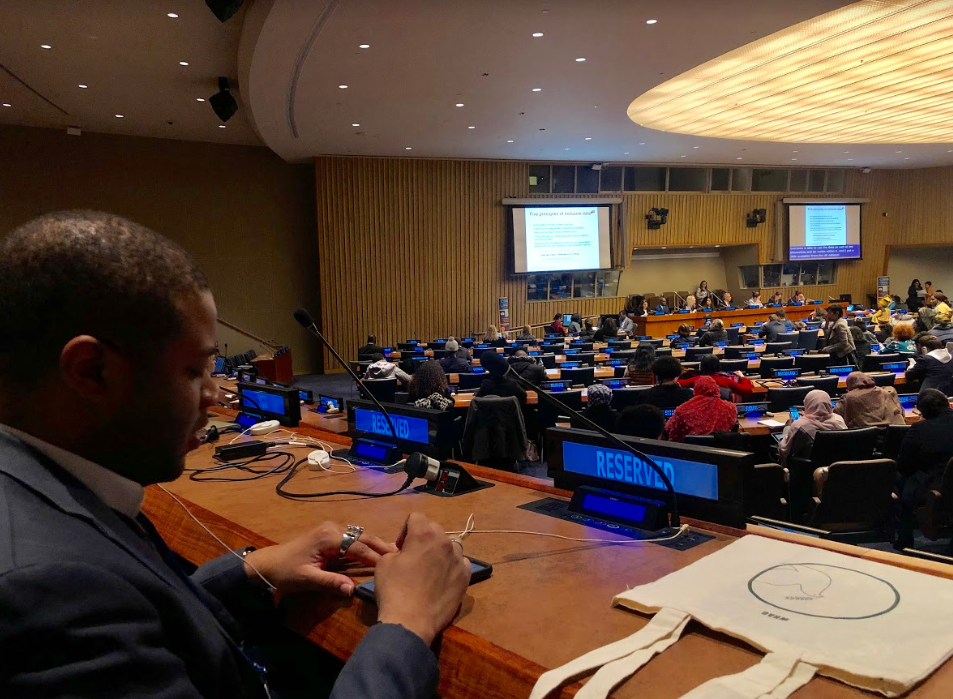
Most data neglects women, especially women in the poorest populations of the world. Data should be inclusive and take into consideration all populations, genders, ages, people from all regions, and people with disabilities. According to the UN, the poorest population in the world are the fastest growing population. Despite this fact,only 1/3 of the 20% poorest populations around the world are registered with the government. It is vital for people to access their services and resources, it should be a basic human right. Registration can link birth, death rates, health and disease, disability rates etc. Disaggregation the data can help target those in need.
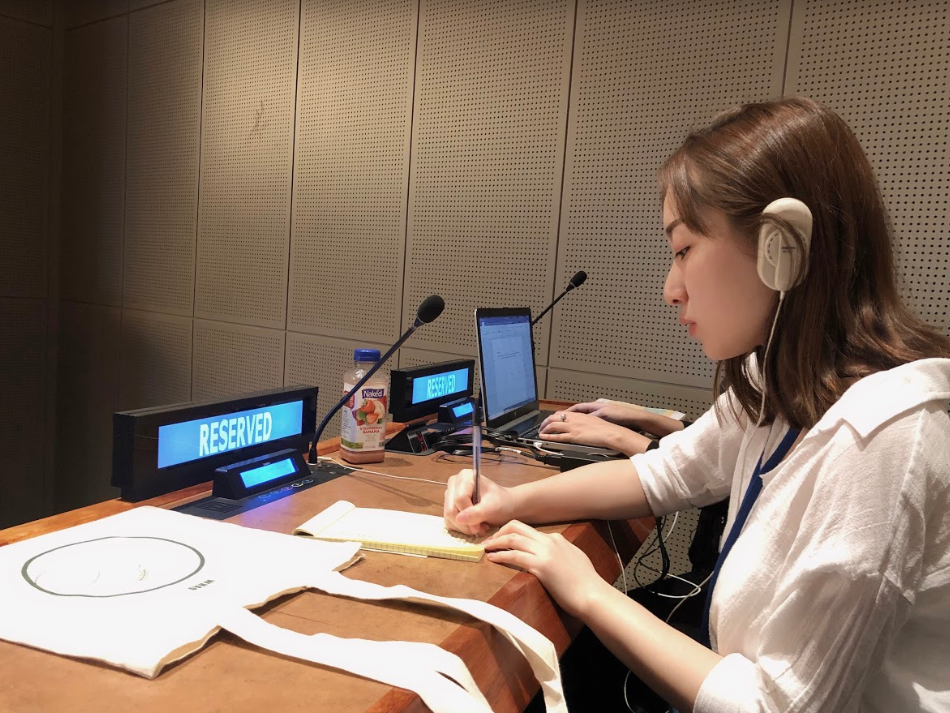
Data is available but not harnessed and published, right now, only 5% data have been used.. Intergovernmental, non-governmental organizations, private sectors, civil society organizations are welcomed to provide data, although not official. Data can contribute hugely to people’s lives, but it also can be racist and marginalized if used, collected, or published incorrectly.
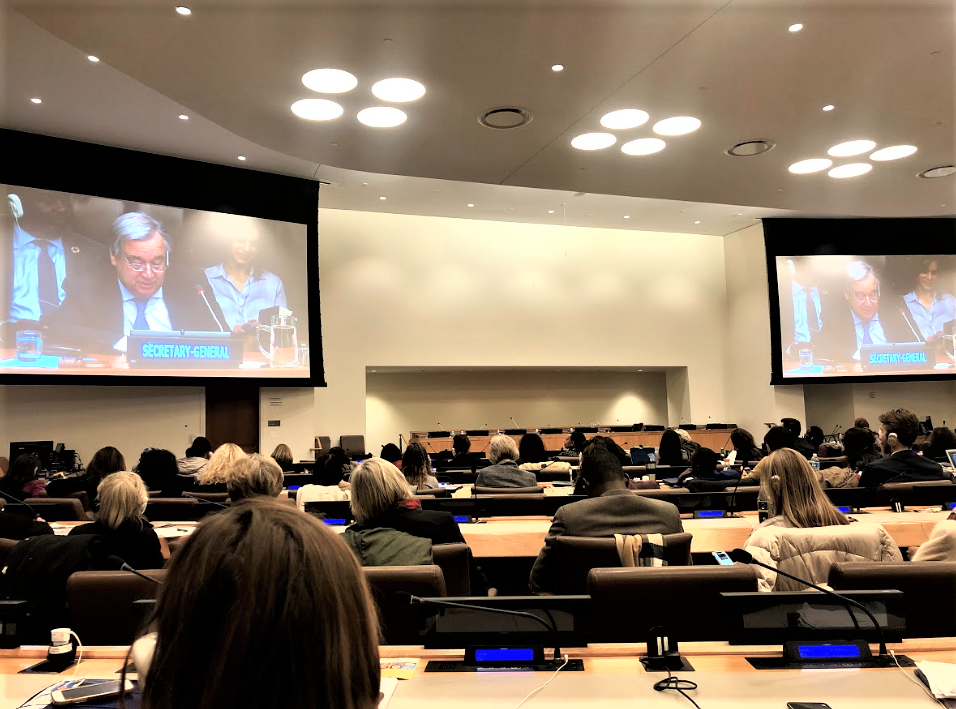
In addition, before ending this 63rd session of Women’s Conference, UN Women and partners launched a new initiative to abolish global discrimination laws, The Equality in Law strategy calls for the immediate repeal of:
· “Clawback clauses” and other constitutional provisions that override non-discrimination guarantees;
· Personal laws that deny women equal rights as spouses by restricting their ability to exercise agency in the management and distribution of marital property, choice of residence, parental rights and responsibilities, and the right to inherit equally with men and boys;
· Discriminatory civil laws that deny women the ability to apply for a passport without the permission of their husbands or transfer their nationality to their child or foreign spouse and place restrictions on physical mobility, employment, decisions on where to live and sexual and reproductive autonomy;
· Labor and social security laws that perpetuate discriminatory pay structures, divisions of labor and pension schemes, while at the same time failing to recognize the restrictive and unpaid burden of care that women carry at home, or to make parental leave available to both women and men; and
· Criminal laws that limit access to justice for women and girls by, for example, placing a higher burden of proof on them, reducing the value of their testimony and allowing perpetrators of rape to marry survivors or invoke “honor” or “provocation” to escape criminal responsibility.
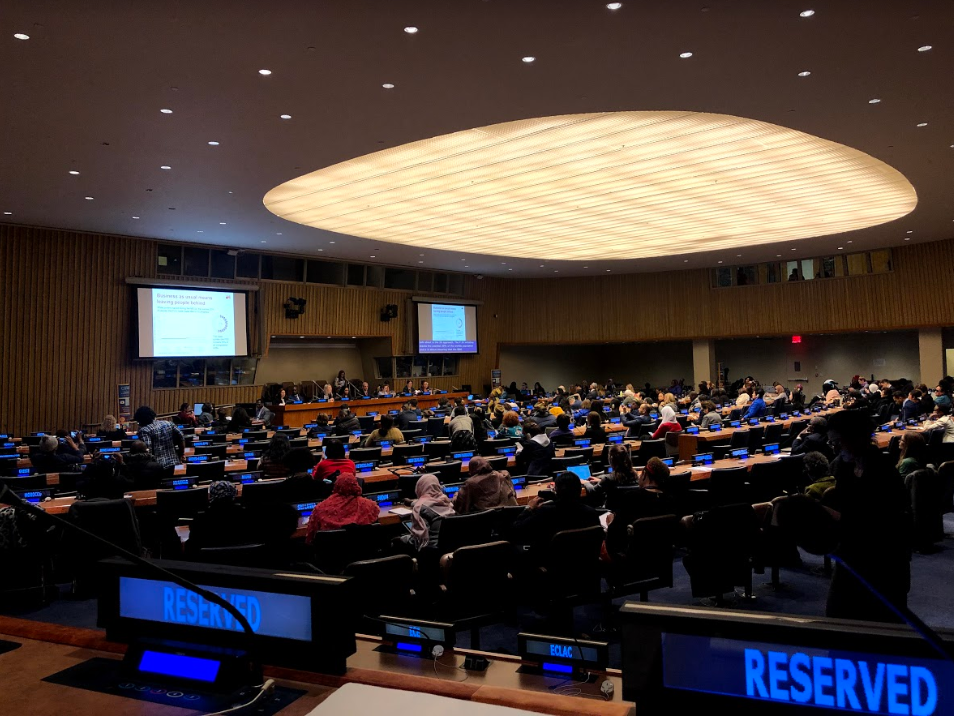
CSW63 Official Events that WHAO attended:
· High-level interactive dialogue among Ministers on the priority theme
'Building alliances for social protection systems, access to public services and sustainable infrastructure for gender equality and the empowerment of women and girls'
· High-level interactive dialogue 'Accelerating implementation of the Beijing Declaration and Platform for Action: Exchange of best practices in preparation for the Beijing+25 review and appraisal'
· Interactive dialogue Review theme 'Women’s empowerment and the link to sustainable development'
· Interactive expert panel on the review theme: Women’s empowerment and the link to sustainable development ‘The data challenge – and opportunity: good practices’
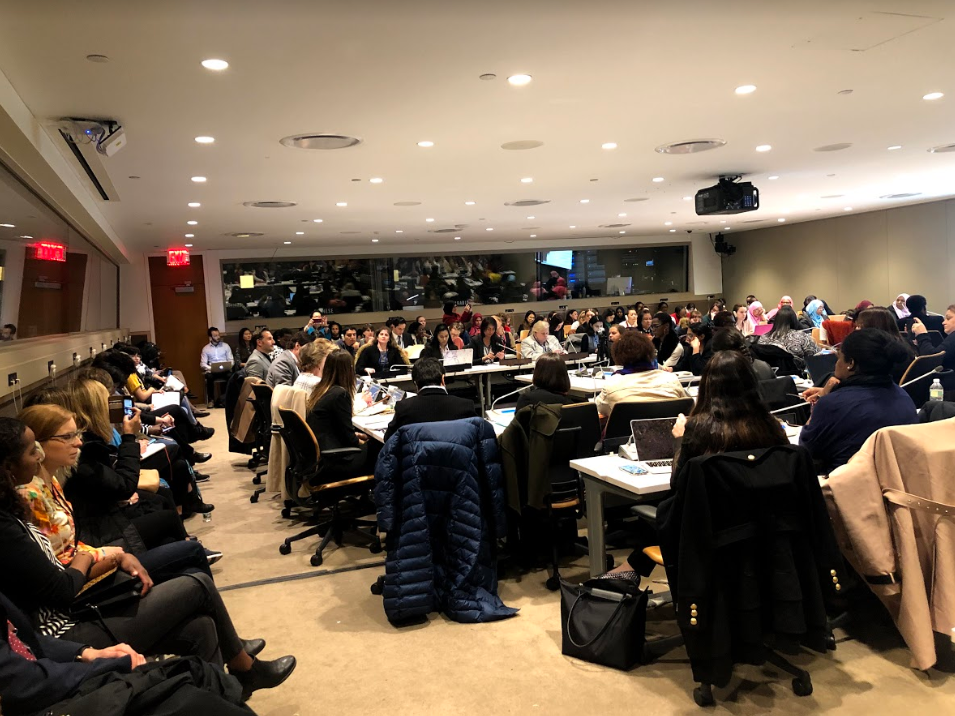
CSW63 Parallel Events that WHAO attended:
· No More Fear! Ending Trauma for Women (March 22)
· Too Young to Wed (March 21)
· Women and Girls Economic Empowerment through Entrepreneurship (March 18)
· Economic Empowerment of Refugee and Immigrant Women (March 11)
· Why Slavery? Film Screening
· What Drives the Gender Gap in Science, Technology and Innovation and How Do We Close It?
Sources:
World Women Report 2015: https://unstats.un.org/unsd/gender/worldswomen.html
Repeal Discriminatory Laws Official Report: http://www.unwomen.org/en/news/stories/2019/3/news-un-women-and-partners-launch-initiative-to-repeal-discriminatory-laws
“ Dedicated towards building a better tomorrow ”